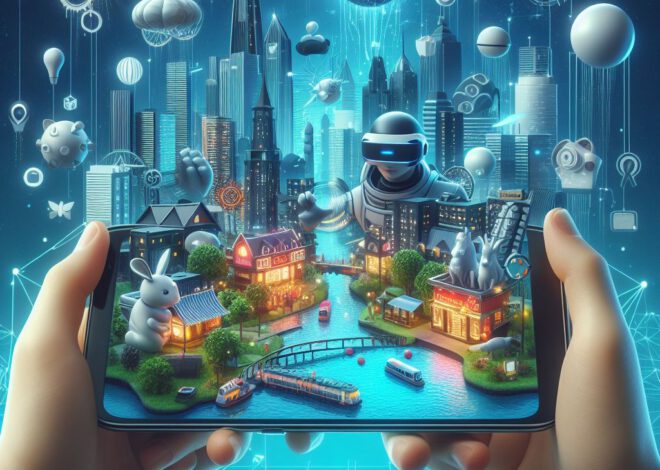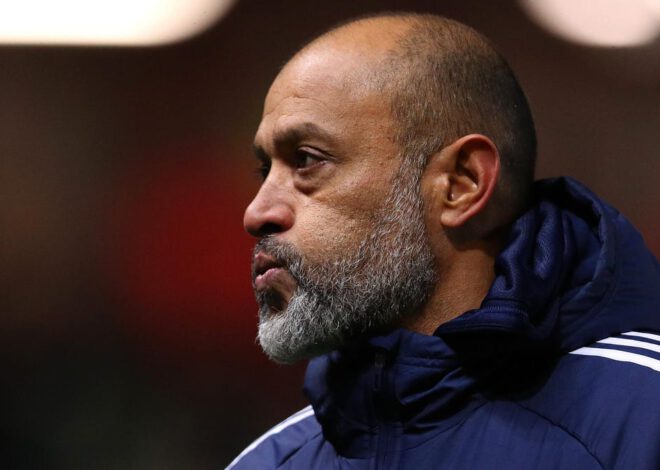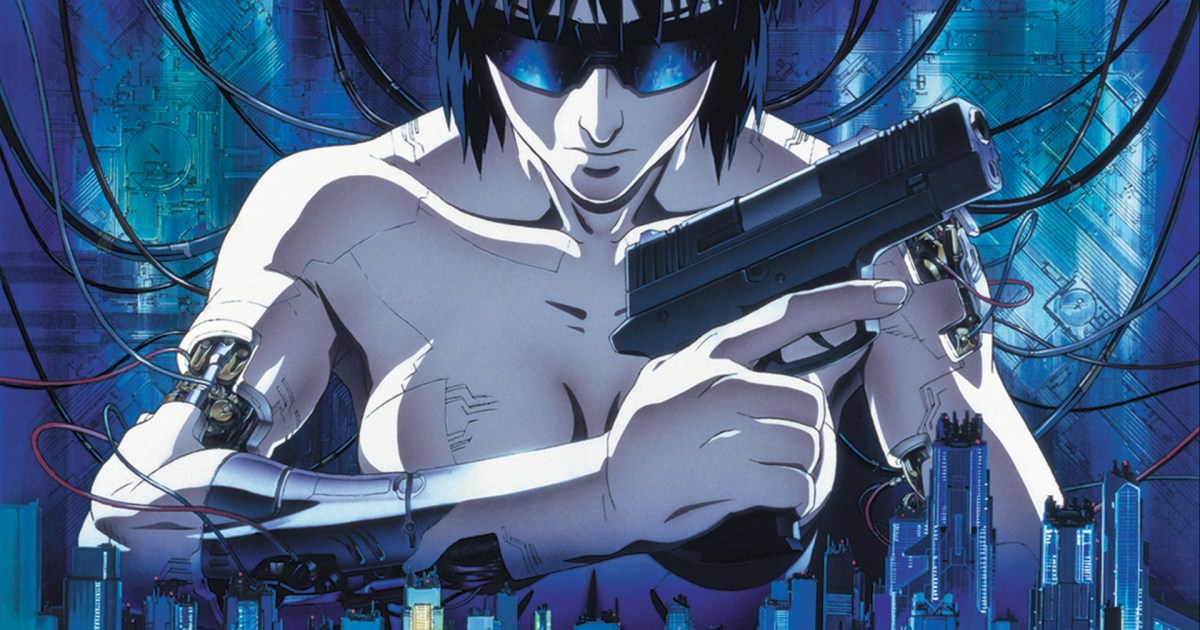
10 best anime movies of the 1990s
Anime fans in the Netflix era are arguably enjoying a new golden age of the genre, as it’s more mainstream than ever before, but even so, the 1990s was a memorable decade for now-classic and cult-classic anime movies. The ’90s was a time when the genre continued planting seeds for it to blossom globally in the long term.
Several of these movies drew more creative attention to animation generally as well, even if on a comparatively much smaller scale than the child-friendly image the likes of Disney were billing the medium as. These beloved cinematic endeavors covered impressive ground in terms of genre, from the sci-fi of Ghost in the Shell to the historical fantasy of Princess Mononoke, cementing the ’90s as a triumphant era for anime filmmaking.
Only Yesterday (1991)
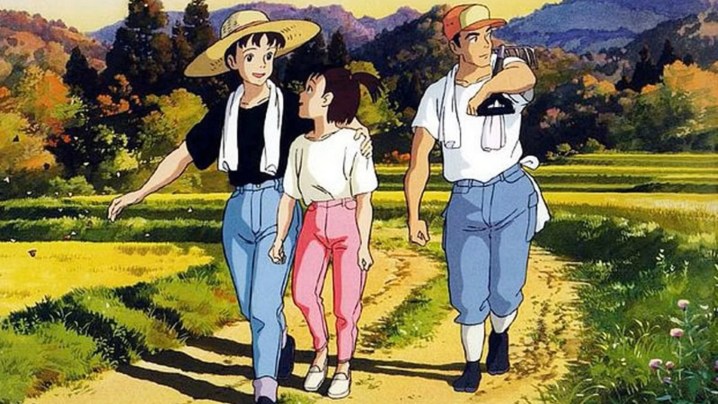 Toho, Studio Ghibli
Toho, Studio Ghibli
Studio Ghibli is deservedly responsible for doing its part in making anime recognized worldwide. And though it’s not mentioned as much as the studio’s other acclaimed productions, director Isao Takahata’s Only Yesterday is an emotionally rewarding movie that stands proudly on its own merits.
Only Yesterday centers around Taeko Okajima, a 27-year-old woman who lived her life accustomed to the urban bustle of Tokyo, but visits her family in the countryside for a change of pace. Unlike the later fantastical elements that would define many Studio Ghibli movies, this anime adaptation of Hotaru Okamoto and Yuko Tone’s manga takes a grounded approach to its narrative. Through this realistic lens, Only Yesterday is a poignant character-driven story about coming to terms with the results of childhood ambitions.
Ninja Scroll (1993)
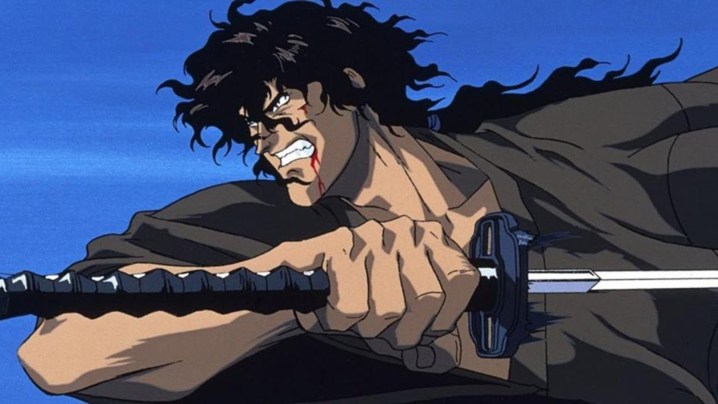 Tokyo Theaters Company, Madhouse
Tokyo Theaters Company, Madhouse
Another epic historical fantasy, director Yoshiaki Kawajiri’s Ninja Scrolls opts for an action-packed approach to its style and storytelling. An anime-original story produced by Madhouse, the movie is set in feudal-era Japan and revolves around the mercenary ninja Kibagami Jubei as he and his companions fight the Eight Devils of Kimon aiming to overthrow the country’s shogunate.
Ninja Scroll is an unapologetically high-octane action fantasy, with the movie being praised for its exciting and fluid animation. And while it doesn’t hold the same level of prestige as Ghost in the Shell or director Katsuhiro Otomo’s Akira in the late ’80s, Ninja Scroll is also credited for pushing anime’s popularity westward and the viability for the genre to appeal to mature audiences.
Currently, Ninja Scroll is only available to purchase in DVD format on Amazon.
Street Fighter II: The Animated Movie (1994)
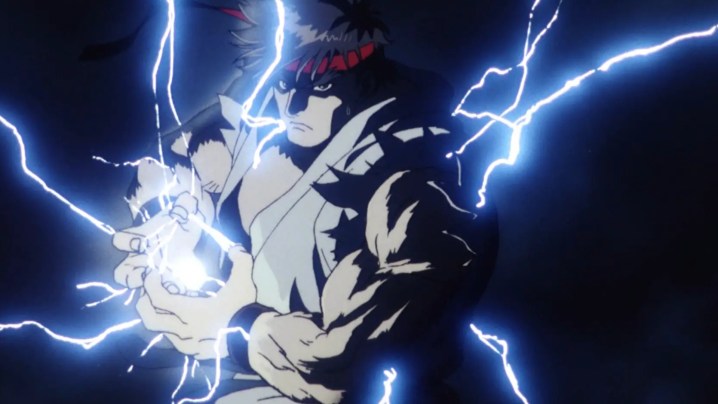 Toei Company, Group TAC
Toei Company, Group TAC
Video game movie adaptations have a notorious reputation for being mostly half-baked cash grabs, and these projects have only recently started to reverse that image. However, anime was the perfect format for Capcom’s premier fighting game series, as Street Fighter II: The Animated Movie was a delightfully entertaining take on the franchise.
An adaptation of the Street Fighter II game rather than a cinematic sequel, director Gisaburō Sugii’s movie sees Interpol agent Chun-Li team up with the U.S.’s Major Guile to overthrow M. Bison’s shadowy crime syndicate. Street Fighter II: The Animated Movie embraces its over-the-top tone and action — thanks to animation studio Group TAC — and lovingly embraces the spirit of the game.
Street Fighter II: The Animated Movie is available to stream now on Amazon Prime Video, Crunchyroll, The Roku Channel, Vudu, Pluto TV, and RetroCrush.
Ghost in the Shell (1995)
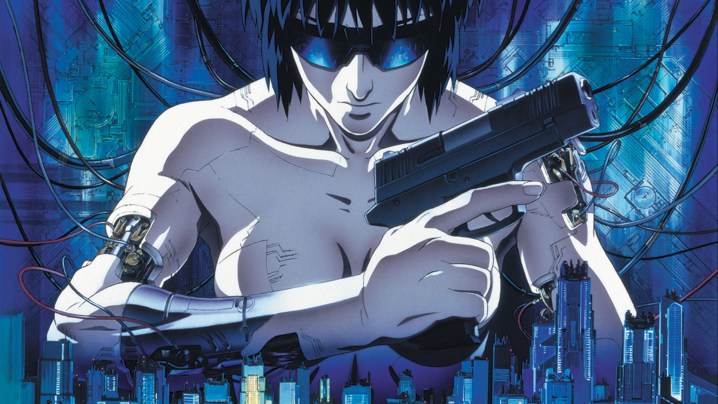 Bandai Visual, Manga Entertainment, Production I.G
Bandai Visual, Manga Entertainment, Production I.G
Of the “cult-classic” anime movies from the decade, director Mamoru Oshii’s Ghost in the Shell was one of the most influential and prolific. The 1995 movie was an adaptation of Masamune Shirow’s manga of the same name, following Motoko Kusanagi and the rest of her team in Japan’s Public Security Section 9 as they hunt down an elusive hacker dubbed the Puppet Master.
Produced by veteran animation studio Production I.G (Haikyuu!!, Ghost in the Shell: Stand Alone Complex), the movie was widely acclaimed for its striking and atmospheric visuals, taking clear and tasteful cues from cyberpunk trailblazers like Ridley Scott’s Blade Runner while standing on its own merits. Ghost in the Shell is a celebrated sci-fi anime that meshes neo-noir thriller and cyberpunk subgenres, using the stylistic approach to tackle themes of the moral grays arising in an aggressively technological world in addition to self- and gender identity.
Ghost in the Shell is available to stream now on Amazon Prime Video, The Criterion Channel, and Tubi.
Whisper of the Heart (1995)
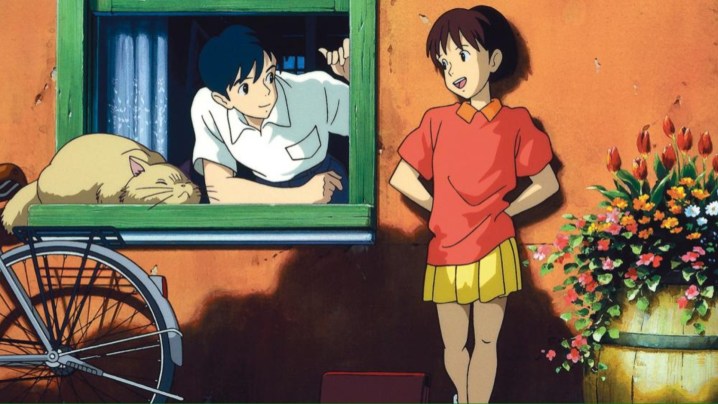 Toho, Studio Ghibli
Toho, Studio Ghibli
Studio Ghibli’s releases are treated as events in and of themselves, and the late director Yoshifumi Kondo’s Whisper of the Heart was a highlight of the ’90s even in a crowded field. Based on the 1989 manga of the same name by writer Aoi Hiiragi, Whisper of the Heart is a romantic drama centering on two teenagers who bond and fall for each other over their shared love of books and growing life ambitions.
On top of the beautifully warm artistic direction and crisp animation fans have come to expect from Studio Ghibli, the plot is a nostalgic and intimate coming-of-age romance. Whisper of the Heart is an emotionally resonating journey that transcends the era it was released, like much of the messaging in Ghibli movies.
Whisper of the Heart is available to stream now on Max.
Memories (1995)
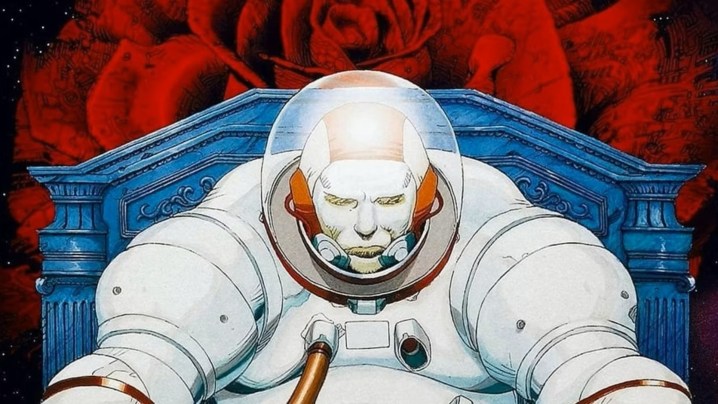 Shochiku, Studio 4C, Madhouse
Shochiku, Studio 4C, Madhouse
Though undoubtedly best known for his work on 1988’s Akira, director Katsuhiro Otomo created a short story for the three-part anthology movie Memories alongside Koji Morimoto and Tensai Okamura. Each filmmaker directed one of the movie’s three shorts, with Morimoto on Magnetic Rose, Okamura on Stink Bomb, and Otomo on Cannon Fodder.
Together, these shorts make Memories arguably one of the most ambitious sci-fi anime movies, as each story delves into unique tonal and thematic areas. Magnetic Rose tells a grim sci-fi story of tragedy and psychological terror; Stink Bomb is a stark contrast by following the misadventures of a lab technician who takes a drug that makes his flatulence lethal; and Cannon Fodder follows the somber story of a young boy desperate to become an artillery officer and attack a foreign nation despite his fortress city having no real enemies.
Princess Mononoke (1997)
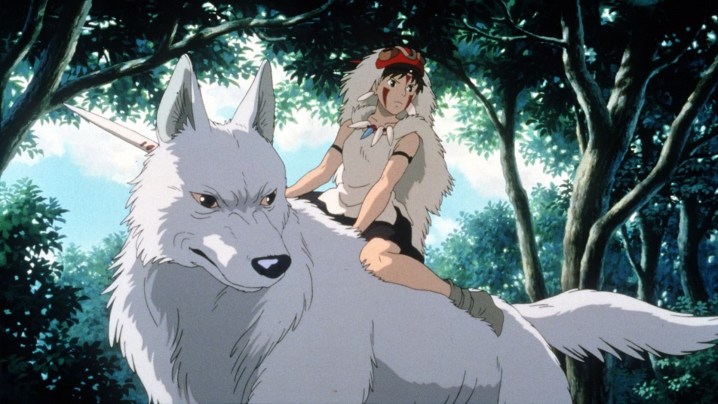 Toho
Toho
Director Hayao Miyazaki is one of the most revered names at Studio Ghibli and the anime genre as a whole, and their collective effort in Princess Mononoke is arguably the biggest standout of the ’90s. An epic historical fantasy, Princess Mononoke is set in a fictionalized version of the late Muromachi period in Japan, as Prince Ashitaka is caught in a struggle between humans and the forest gods over diminishing natural resources.
Even today, Princess Mononoke is considered some of Miyazaki and Studio Ghibli’s best work, powerfully emphasizing the social and political commentary both are popularly known for doing. Themes of environmentalism are especially prominent, presenting the imbalance of human development and environmental preservation with impressive tact.
Princess Mononoke is available to stream now on Max.
The End of Evangelion (1997)
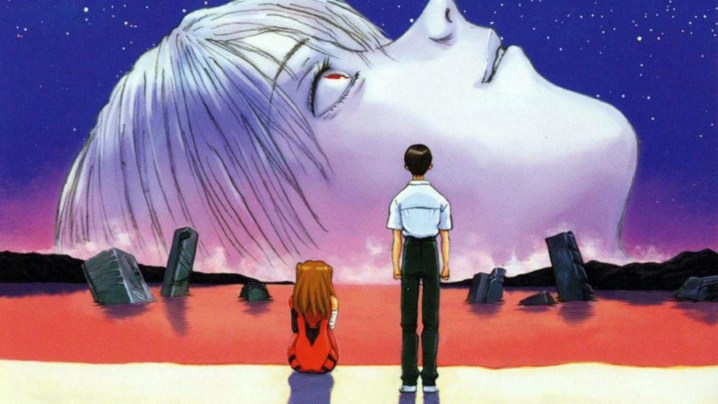 Toei Company, Gainax, Production I.G
Toei Company, Gainax, Production I.G
Neon Genesis Evangelion was one of the biggest TV anime milestones of the ’90s, alongside the likes of Cowboy Bebop. The series proved to be one of the most influential of the mecha subgenre as well, and it spawned an entire franchise that expanded into film. Co-directed by Kazuya Tsurumaki and Hideaki Anno and co-produced by Production I.G and Gainax, The End of Evangelion was the second movie in the franchise and the finale of the TV anime.
Set in a bleak dystopia where Earth is devastated by a cataclysm dubbed the Second Impact, young Shinji Ikari is recruited by his father into the ominous organization Nerv to become a soldier piloting the titular mechas. Evangelion is well-known for its grim philosophical subject matter, including the cast grappling with their psychological traumas while serving as child soldiers. The End of Evangelion leans further into elements of moral ambiguity, effectively remaking the series’ last two episodes for a new ending.
The End of Evangelion is available to stream now on Netflix.
Perfect Blue (1998)
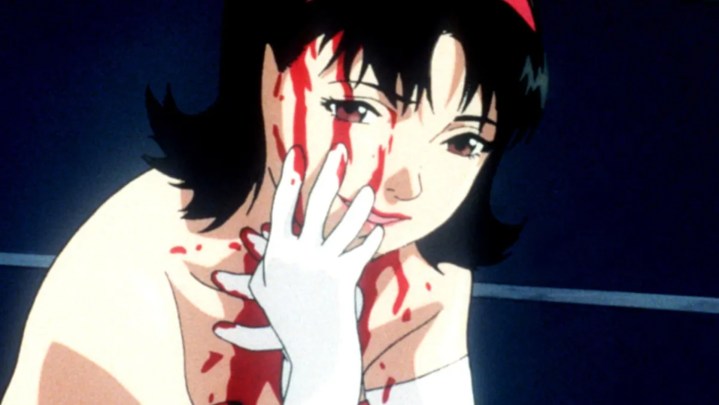 Rex Entertainment
Rex Entertainment
An underrated anime of its time, Perfect Blue was a terrific showcase for how the genre can explore psychological horror and thrillers. Directed by Satoshi Kon and animated by Madhouse, this movie is an anime adaptation of author Yoshikazu Takeuchi’s novel Perfect Blue: Complete Metamorphosis that follows a former J-Pop idol as she becomes a victim of stalking when retiring from the music group.
The movie was praised for how the harrowing story visually unravels from the psychological point of view of Mima Kirigoe. As the story becomes increasingly gruesome, Mima’s perspective becomes unreliable as it muddies the line between her imagination and reality. Perfect Blue succeeds as a compelling psychological thriller while also serving as a scathing critique of aggressively vain and consumerist culture.
Perfect Blue is available to stream now on Shudder.
Jin-Roh: The Wolf Brigade (1999)
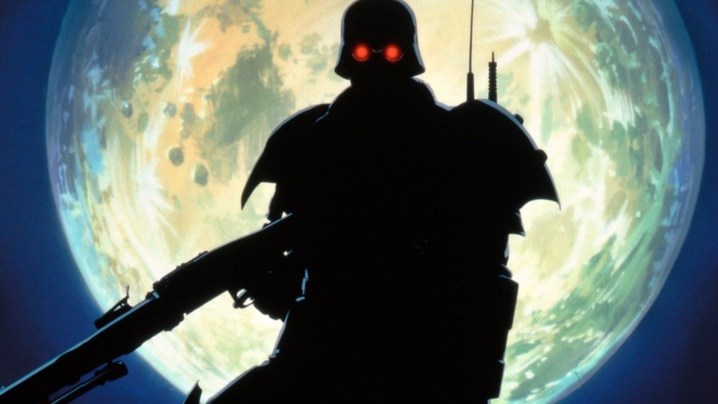 Bandai Visual, Production I.G
Bandai Visual, Production I.G
Released at the tail-end of the decade, director Hiroyuki Okiura’s Jin-Roh: The Wolf Brigade was an inventive spin on historical fiction and use of animation style. Based on writer Mamoru Ushii’s manga Kerberos Panzer Cop, this story takes place in an alternate timeline where Nazi Germany won World War II, Japan is economically and societally devastated by the Axis power’s attempts to globalize it.
Aesthetically, Jin-Roh: The Wolf Brigade stands out for its ambitious use of cel-shaded animation, but its story also deserves praise as a clever action and political thriller. Plot revelations mixed with stunningly animated action sequences as government agencies and anti-government terrorist groups clash make Jin-Roh: The Wolf Brigade one of the most underrated anime movies of the ’90s.
Jin-Roh: The Wolf Brigade is available to stream now on Crunchyroll and Tubi.
